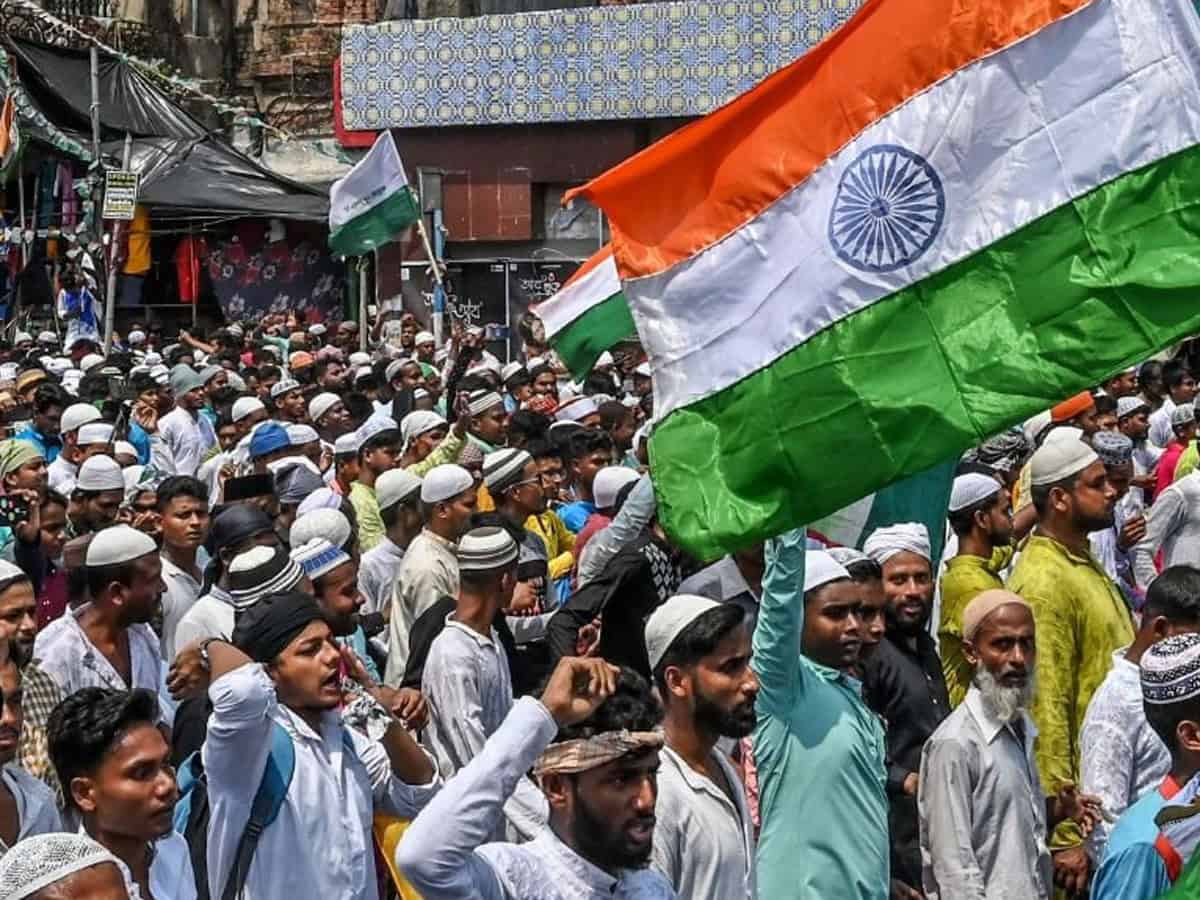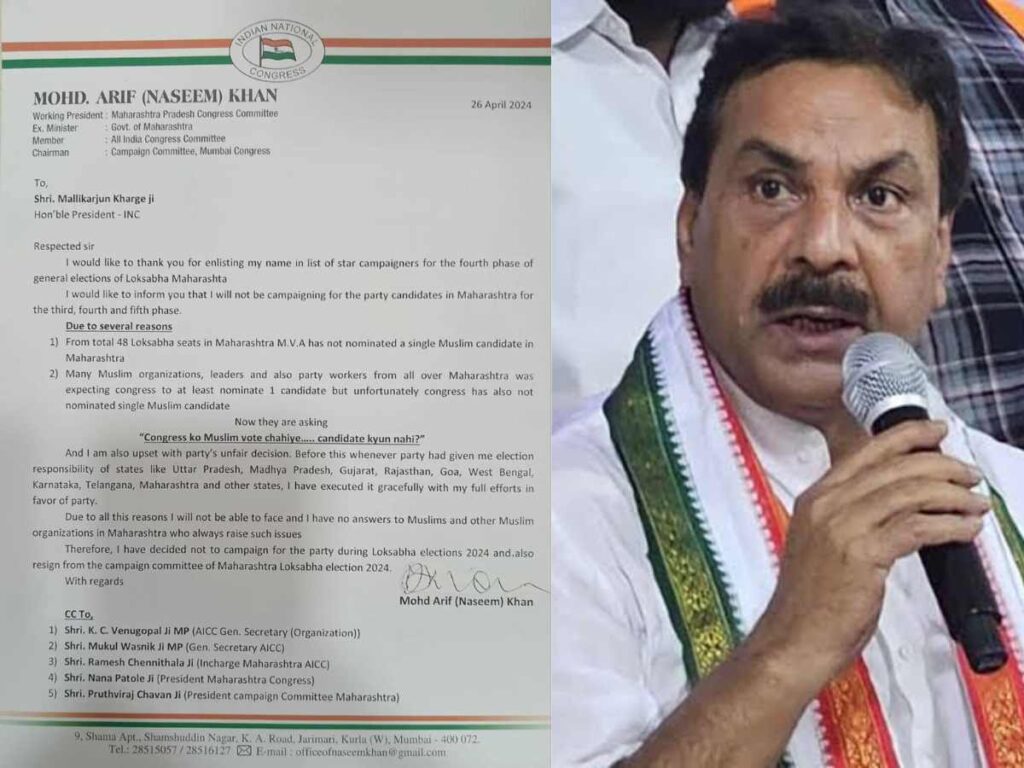
The ongoing Lok Sabha election, dubbed as the largest festival of democracy in the world, has stumbled yet again upon the question of Muslim representation.
The BJP’s campaign this time has been communally provocative. On the other hand, the opposition parties, especially Congress, are hesitant to talk about Muslim political aspirations. The reluctance to address the representation of Muslims as legitimate political stakeholders has complicated the situation even further.
India, with the third-largest Muslim population globally, has seen consistent underrepresentation of Muslims in politics. Since 1952, Muslims’ representation in the Lok Sabha has been less than 6% of total elected MPs, while in the Rajya Sabha, it’s slightly higher at 10.5%.
Looking at the last two general elections in India, the 2014 elections occurred amidst heightened communal tension following the Muzaffarnagar riots. The BJP capitalised on this polarisation, exploiting Hindu perceptions. In 2019, the Pulwama attack and Balakot airstrike, portrayed as robust responses to Pakistan, fueled a nationalist fervour and communal divisions.
In 2024, while there’s no recent communal incident, the BJP has invoked religious sentiments and misrepresented the Congress’ manifesto. Prime Minister Narendra Modi has accused the Congress of redistributing the country’s wealth among Muslims, referring to them as ‘intruders’ and people ‘with more children’.
According to observers, the Congress failed to adequately respond to the PM’s remark against the country’s largest minority community.
Renewed furore in Maharashtra
The renewed furore over Muslim representation erupted after Maharashtra Congress’ working president Arif Naseem Khan resigned from the panel of star campaigners in protest against MVA, of which Congress is a part, failing to field even a single candidate in the 48 Lok Sabha seats.
He wrote a letter to party chief Mallikarjun Kharge stating that he won’t campaign for the Lok Sabha elections as the Opposition Maha Vikas Aghadi (MVA) bloc had not fielded a Muslim candidate. “From 48 Lok Sabha seats in Maharashtra, MVA has not nominated a single Muslim candidate in Maharashtra,” the former state minister wrote.
“Due to all this reasons, I will not be able to face and I have no answers to Muslims (sic),” Mr Khan wrote in the letter.

The Congress is contesting 17 out the 48 Lok Sabha seats in Maharashtra in alliance with the Shiv Sena (UBT) and the NCP (Sharadchandra Pawar). Arif Naseem Khan was in race for a ticket from Mumbai North Central, but the party chose city unit president Varsha Gaikwad for the constituency.
According to The Indian Express, “The Muslim community accounts for 25% population of the Mumbai city and 19% of its suburbs. The angst expressed by Khan could hurt the Congress in the Mumbai North Central constituency, which has a substantial Muslim population.”
Muslim candidates fielded by Congress in Lok Sabha elections 2024
During the past two Lok Sabha elections, the number of Muslim candidates fielded by Congress have been conspicuously low. In 2019, the party nominated 35 Muslim candidates, only three more than it had in 2014. However, the number has receded in the 2024 elections, which sparked anger among the Muslim leader in the party, especially in Maharashtra.
However, in an attempt to pacify the disgruntled leader from Maharashtra, Arif Naseem Khan Congress president Mallikarjun Kharge said that he would be compensated, given that Rajya Sabha elections were also due.
Here is the number of Muslim candidates fielded by Congress in Lok Sabha polls 2024:
| State | No. of candidates fielded by Congress | No. of Muslim candidates |
| Chattisgarh | 11 | 0 |
| Karnataka | 1 | 1 |
| Kerala | 16 | 1 |
| Meghalaya | 1 | 0 |
| Tripura | 1 | 0 |
| Nagaland | 1 | 0 |
| Arunachal Pradesh | 2 | 0 |
| Lakshadweep | 1 | 1 |
| Telangana | 17 | 1 |
| Gujarat | 24 | 0 |
| Madhya Pradesh | 28 | 0 |
| Rajasthan | 22 | 0 |
| Andhra Pradesh | 20 | 0 |
| Assam | 13 | 2 |
| Bihar | 3 | 2 |
| Himachal Pradesh | 2 | 0 |
| Jharkhand | 5 | 0 |
| Goa | 2 | 0 |
| Manipur | 2 | 0 |
| Mizoram | 1 | 0 |
| Maharashtra | 17 | 0 |
| Punjab | 6 | 0 |
| Tamil Nadu | 8 | 0 |
| Uttarakhand | 5 | 0 |
| Odisha | 21 | 1 |
| Uttar Pradesh | 15 | 2 |
| West Bengal | 13 | 6 |
Does Muslim vote matter?
In the past elections, the Muslim vote had been divided among the secular candidates, which in turn helped the BJP.
For example, Maldah constituency in West Bengal has nearly 45% Muslim population. In 2019, BJP carried out a highly polarised campaign and its candidate emerged as winner with 37% votes. The BJP candidate won, because Muslim votes were divided.
Similar was the case of Raiganj, another parliamentary seat in the same state, where Muslim make up 42% of the population.
There are only about 50 parliamentary constituencies in the country where the share of Muslims among the electorate is more than 30 percent. However, most of these seats have seen non-Muslim candidates win.
There are two major reasons for such discrepancies – How Muslim candidates are fielded and How Muslim community votes. Neither do the country’s secular parties field Muslim candidates as per the population ratio, nor do Muslim rally behind one particular party.
If the parties find a way to consolidate the Muslims votes behind a secular candidate, the country’s 20 percent population can emerge as a huge deciding factor in the elections.

